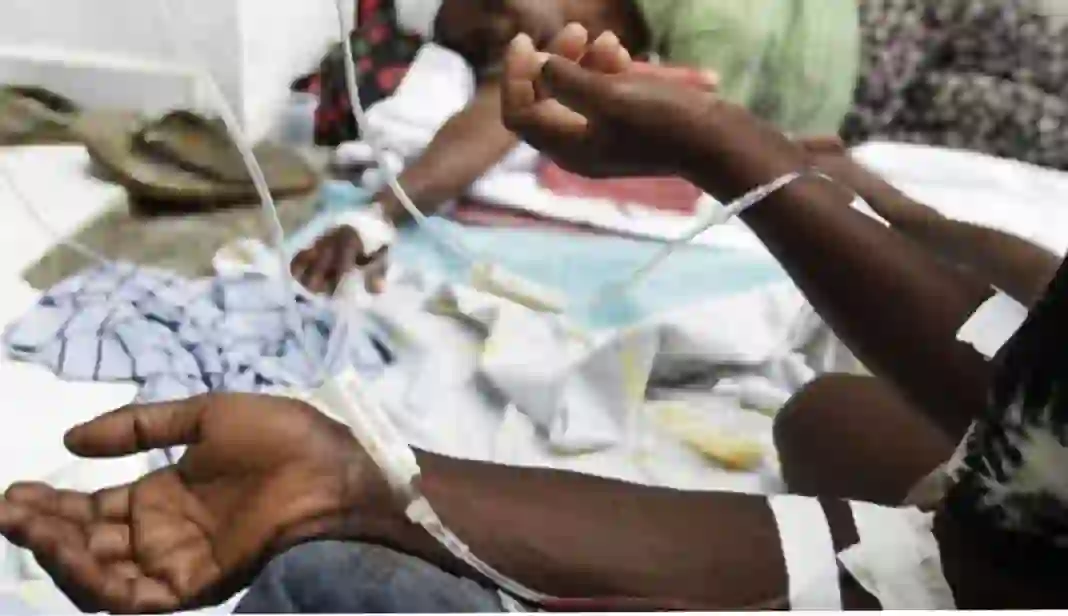Amidst global shortage of vaccines to tackle the Cholera outbreak ravaging the country, the Federal Government has initiated dialogue with the Global Alliance for Vaccines and Immunisation, GAVI, to obtain emergency supplies of oral cholera vaccine, OCV, to tackle the disease.
Jide Idris, Director-General of the Nigeria Centre for Disease Control and Prevention, NCDC, said the Coordinating Minister of Health and Social Welfare, Prof. Muhammad Ali Pate, is leading the discussions with GAVI, and is working working tirelessly to address the situation.
The search for an emergency vaccine became necessary as the NCDC announced an increase in the death toll and spread of the disease across 32 states and 115 local government areas of the Federation.
Nigeria utilises three World Health Organization, WHO, pre-qualified oral cholera vaccines, including Dukoral, Shanchol, and Euvichol-Plus.
Two doses of any of the three vaccines are required for full protection and are administered only to persons and groups at high risk, such as travellers to areas with active cholera transmission or people living in areas experiencing outbreaks.
On the request for emergency doses of cholera vaccine,, Idris said: “GAVI, a global health partnership, plays a pivotal role in improving access to vaccines in low-income countries. Through these negotiations, Nigeria aims to secure an emergency supply of cholera vaccines to curb the outbreak.
“Cholera vaccines are not stocked in our public facilities, though they are available in limited quantities in the private sector. But vaccines alone are not the only preventative measures we have at the moment; we must also ensure environmental cleanliness and proper hand hygiene.”
Idris explained further that there is a surge in global demand for cholera vaccines, leading to severe shortage, even though he noted that the limited supply has strained efforts to control outbreaks in endemic regions, including Nigeria.
“Poor sanitation, inadequate clean water supply, and limited healthcare infrastructure have exacerbated the spread of the disease, but in response to the crisis, the NCDC has intensified its public health campaigns, emphasising hygiene practices and the importance of clean water.
According to Idris, “however, these measures alone are insufficient without adequate vaccination coverage. The shortage of vaccines has hampered mass immunisation campaigns, crucial for preventing the spread of cholera.
“The situation in Nigeria underscores broader issues of global health equity and preparedness. It highlights the necessity for increased vaccine production and distribution infrastructure investment,” Idris stated.
While noting that more vaccines were being ordered because of the scale of the problem, the NCDC D-G called for stronger international collaboration to ensure that life-saving vaccines reach the most vulnerable populations promptly.
He regretted that cholera, an acute diarrheal disease caused by ingestion of contaminated water or food, remained a persistent health threat in Nigeria, with the outbreak significantly impacting several states, leading to deaths and overwhelming healthcare facilities.
In 2021, Nigeria received approval from WHO for over 3.5 million doses of the oral cholera vaccine. In 2022, the country requested an additional nine million doses of the vaccines.
The effectiveness of the cholera vaccine varies, depending on the type of vaccine and the number of doses given.
The Lagos State Governor, Babajide Sanwo-Olu of Lagos State, yesterday, linked the spread of cholera outbreak to the drop in sanitation at the community level and the intake of contaminated water in the state.
The Governor stated this at ongoing 2024 Lagos International Water Conference, held at Victoria Island.
Sanwo-Olu said the current cholera crisis in the country would have spiraled out of control if the state government had not been proactive in controlling the spread of the water borne epidemic.
The Governor said but for the quick activation of the state’s incident command mechanism and surveillance system to control the contagious disease, the nation would have been grappling with the “catastrophic consequence” that could have resulted from the reoccurrence of the epidemic.
His words: “Today, we are talking about cholera outbreak and we have seen the disease spread in last couple of weeks with not too serious fatalities like we had during COVID-19.
Discover more from The Source
Subscribe to get the latest posts sent to your email.








